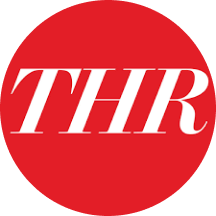The United Kingdom, France, and Germany have begun the process to reimpose United Nations sanctions on Iran due to its significant non-compliance with international nuclear agreements. This action, taken on Thursday, involves triggering the snapback sanctions mechanism established under the 2015 Joint Comprehensive Plan of Action (JCPOA).
At 9 a.m. EST, the three nations submitted a letter to the president of the UN Security Council, Panama's Ambassador Eloy Alfaro de Alba, outlining their intent to activate these sanctions. The letter emphasized their shared goal that Iran should never seek or develop nuclear weapons.
The decision follows months of warnings from European leaders and years of concerns raised by the United States regarding Iran's violations of the JCPOA. Although Iran's non-compliance began in 2019, the U.S. has been vocal about these issues since its withdrawal from the agreement in 2018.
A UK official stated that the decision to enforce snapback sanctions was not made lightly. The official noted that intense diplomatic efforts over the past year led to this point, citing Iran's uranium stockpile levels, the operation of advanced centrifuges, and its refusal to comply with international inspection regulations as key factors.
As of May, Iran reportedly possessed approximately 20,000 pounds of enriched uranium, including 900 pounds of highly enriched uranium (HEU), which is significantly above the JCPOA limit of 660 pounds. The official remarked, "Iran is the only non-nuclear weapons state producing highly enriched uranium," and expressed concern over the unaccounted stockpiles.
The snapback sanctions process allows for a 30-day period during which Iran can take actions to prevent the reimposition of sanctions. If no resolution is reached, all 15 members of the Security Council, including Russia and China, could be legally bound to restore sanctions.
Rafael Grossi, Director General of the International Atomic Energy Agency (IAEA), stated that there is still time for Iran to comply and avoid sanctions. He expressed cautious optimism, saying, "Iran will have to comply. I think there is a possibility. I'm not naively optimistic, but at the same time, there is no reason why we should not [have] a good outcome."
The E3 and the U.S. have outlined specific steps Iran must take to avoid sanctions, including granting the IAEA full access to all nuclear sites and engaging in direct negotiations with the U.S. However, Grossi indicated that achieving compliance with the JCPOA may be challenging due to Iran's technical advancements.
Concerns have also arisen regarding the location of the HEU, which could potentially be enough to create ten nuclear warheads. Following U.S. strikes on Iran's nuclear program in June, there were reports suggesting that Iran may have relocated some of its uranium. However, Grossi stated that the IAEA has no evidence to support these claims.
Iran has threatened retaliation if sanctions are implemented, although the specifics of such actions remain unclear. The country has strengthened ties with allies like Russia and China, who oppose the snapback sanctions. Despite their veto power on the Security Council, they cannot unilaterally block the sanctions due to the unique structure of the snapback mechanism.
The E3 nations have reiterated their commitment to a diplomatic resolution, stating that they will continue to strive for a negotiated solution to the issues surrounding Iran's nuclear program.

 America News
America News

 FOX News
FOX News WISC-TV Channel 3000
WISC-TV Channel 3000 WFIN News
WFIN News RadarOnline
RadarOnline The Hollywood Reporter
The Hollywood Reporter Tampa Bay Times Sports
Tampa Bay Times Sports